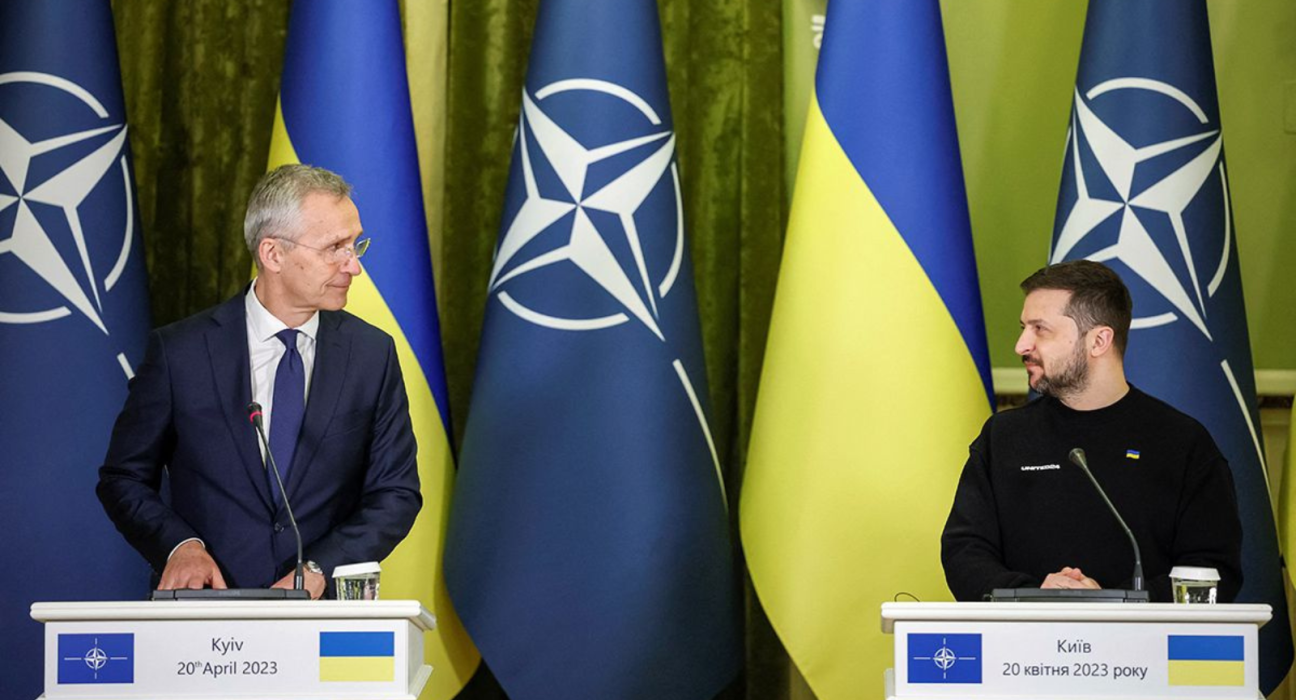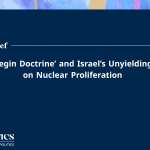The Russia-Ukraine war began in February 2022 when Russia invaded Ukraine and is now a vital conflict that has altered the way global geopolitics work (Sengulo Msellemu, 2016). NATO has played a significant part in handling Russia’s aggression, providing aid to Ukraine without getting involved in any direct conflict with Russia. The organization provides military help such as arms and intelligence and supports political efforts aimed at strengthening Ukraine’s defence, so as not to cause the war to expand further with Russia (Lepskiy & Lepska, 2022). In the last couple of years, NATO has directed its strategies toward supporting the eastern front and assisting Ukraine with extra equipment and training. In 2024, NATO maintains its commitment to Ukraine’s membership, while dealing with the difficulties in its fight with Russia.
NATO’s Strategic Response to the War
After Russia attacked Ukraine in 2022, NATO assisted Ukraine mainly by providing military, intelligence and cybersecurity support. NATO has not taken part in military actions, yet its countries have provided soldiers and advanced weapons to Ukraine such as anti-tank and air defence systems, drones and ammunition. Having the necessary supplies has made it possible for Ukraine’s military to challenge the progress of the Russian army.
It has been NATO’s responsibility to ensure that member states’ armed forces offer aid quickly and coordinate with each other. Because of NATO’s assistance, Ukraine has been able to strengthen its online defences against Russia, who have carried out major cyber-attacks as part of today’s warfare. NATO provides support to Ukraine in safeguarding its most important services and dealing with cyber-attacks designed to shake the country’s economic and defence systems.
Diplomatic and Political Dimensions
NATO has constantly backed Ukraine in diplomatic matters while avoiding any direct military engagement. The main leaders of the alliance have always said they will not go to direct war with Russia because it could result in NATO fighting Russia and worsen the situation to the point that nuclear weapons might be used. As a result, NATO has chosen to give Ukraine great aid such as military equipment, special training and information, to help it resist and defend itself.
The NATO alliance has strongly criticised Russia for going against international law and Ukraine’s borders, yet it has not taken actions that might cause the situation to get worse. NATO has also made efforts to boost its own security, secure its borders in Eastern Europe and partner with other countries nearby to contain any further Russian advancement. NATO leaders at the meeting in 2024 gave special importance to strengthening defence in the areas near its eastern edges. It is expected that by 2025, the alliance will make military cooperation stronger and help with responding to more active Russian troops.
Challenges and Criticism
People have been critical of NATO’s involvement in the Russia-Ukraine war. Some people have heavily criticised the alliance for not intervening directly. Certain analysts claim that NATO’s decision not to engage Russia with strong action has helped prolong the war and caused many deaths among civilians. Some argue that putting so much effort into not fighting with Russia has made NATO fail to put enough pressure on Moscow to back down. Among its 30 members, every state has its own national and political priorities. Because of this, people have different views on how much help Ukraine should receive. At times, these tensions within the alliance have stopped it from acting as one group. In addition, certain critics suggest that NATO’s actions during the post-Cold War era such as its interaction with Ukraine, escalated tensions that resulted in the conflict (Insisa, 2022).
Enhancing NATO’s Strategic Response
Although NATO’s pragmatic approach has so far managed to sidestep direct confrontation with Russia and bolster Ukraine’s defensive capabilities, changing threats, protracted conflict, and geopolitical imperatives call for a more flexible and strategic approach.
- Reinforce Forward Deterrence and Rapid Deployment
NATO should strengthen its eastern flank by pre-positioning more hardware and enhancing rapid deployment forces. A NATO Response Force (NRF) would be ready for use as both a deterring and a protecting instrument for any vulnerable nation in case there were signs of another interventionist move initiated by Putin.
- Strengthen Multilateral Defence Aid Coordination
Some members have offered a lot of military assistance, and a centralized NATO based coordination centre could increase transparency, consolidation, and fair distribution of resources. The body would organise logistics, follow up contributions and prevent overlap in training and supplying.
- Institutionalisation of Cyber and Hybrid Warfare Preparedness
With cyber and information warfare playing a crucial role in the new conflict, NATO needs to establish permanent cyber assistance mechanisms for non-member partners as Ukraine. Take for example the widening of the mandate of the Cooperative Cyber Defence Centre of Excellence (CCDCOE), the creation of digital rapid response teams and efforts to strengthen resilience through public-private joint cyber exercises.
- Engage more deeply with partners around the world
The impact of the war is not confined to Europe. NATO should deepen dialogue and collaboration with democratic nations worldwide, such as Japan, Australia, and India, on sanctions enforcement, technology protection and securing critical infrastructure. Deeper transregional partnerships would help balance Russian influence and bolster NATO’s global prestige.
Conclusion
NATO has played a major role in the way the world responds to Russia’s actions in Ukraine. Ukraine can fight off Russian attacks because of the important military, intelligence and diplomatic support from the alliance. Even so, NATO’s slow involvement in the conflict has been seen as a drawback by people who say the alliance should act more decisively against Russia. Issues within NATO about providing support to Ukraine are adding more challenges to the situation. NATO’s way of handling these issues and finding unity without escalating the conflict will greatly affect the future of both Europe and the rest of the world.




